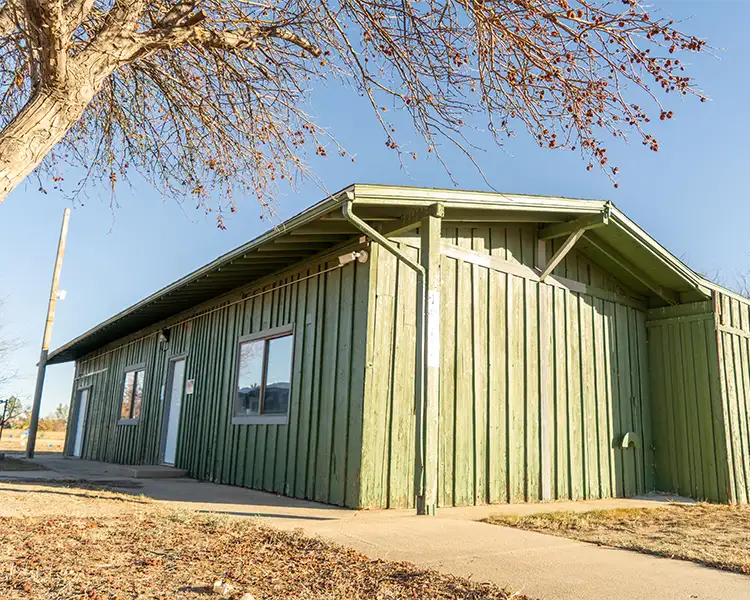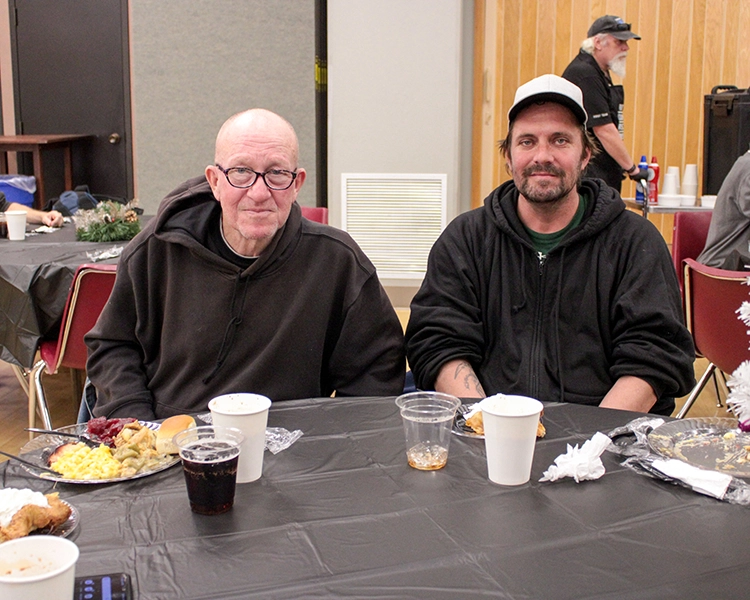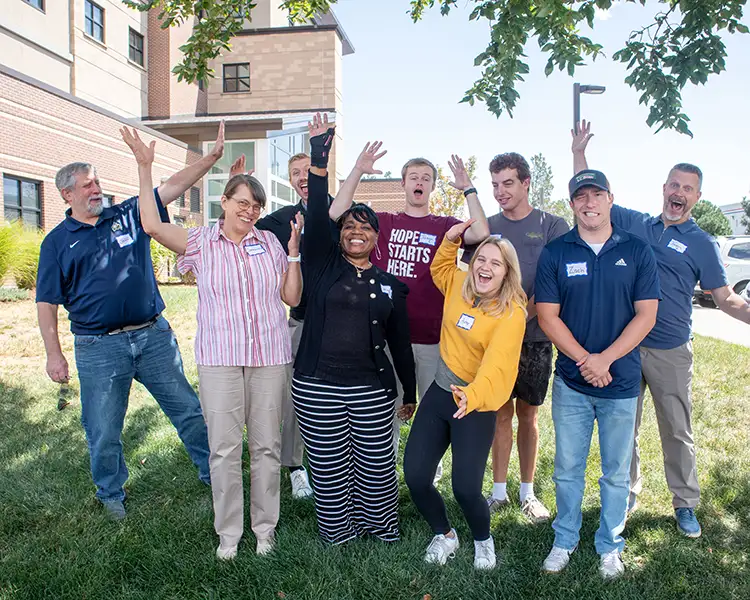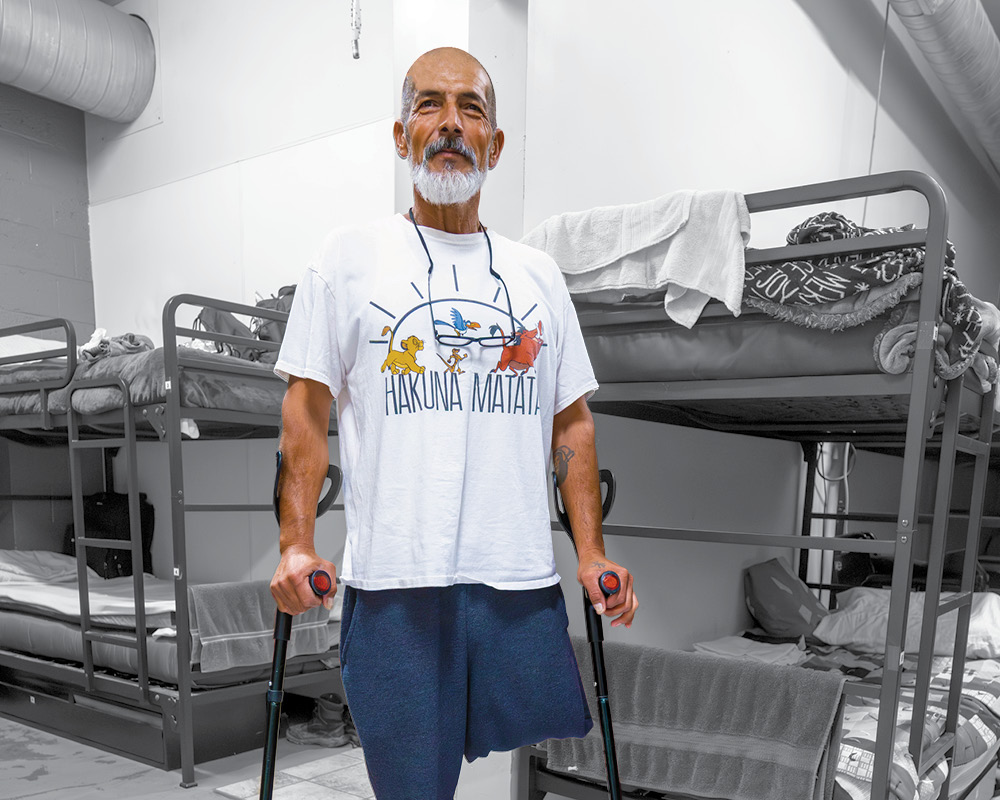Mental Health Awareness Month is in full swing, and at Fort Collins Rescue Mission, we understand the importance of mental health and trauma-informed care when it comes to experiencing homelessness. Every person we who walks through our doors for help has a story. We strive to come alongside each individual, meeting them at their unique points of need and empowering them each and every day.
In 2023, Northern Colorado Continuum of Care’s Point-in-Time Survey* found 882 people experiencing homelessness on a single night in Northern Colorado.
Of those, nearly a third reported a mental health concern as a contributing factor to their homelessness. As a result, mental health is one of the core factors we have to consider when helping our guests and program participants overcome the challenges they face in homelessness.
The Importance of Connection and Community
Just the homeless experience itself can be extremely traumatic from lack of safety, witnessing or experiencing violence, the uncertainty, and the absence of supportive relationships.
According to the Substance Abuse and Mental Health Services Administration of the United States,** “How someone responds to a traumatic experience is personal. If there is a strong support system in place, little or no prior traumatic experiences, and if the individual has many resilient qualities, it may not affect his or her mental health.”
That’s why reconnection with a positive community is so important for the mental health of our shelter guests and New Life Program participants.
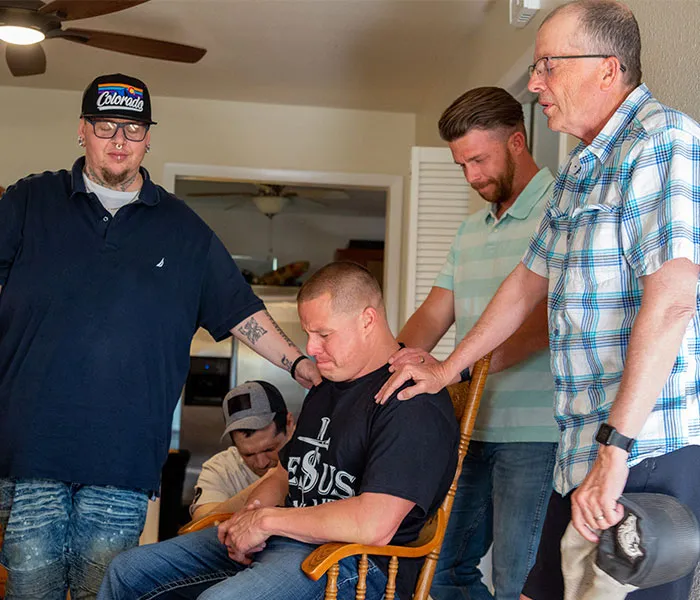
Reconnecting with a positive community through church, family, friends, and support groups both inside the Mission and out has a huge influence on the success rate of people who complete our life-changing programs. Our New Life Program, for example, has an 86% success rate (individuals still in housing 1 year after completing the program).
Looking For More Content Like This?
See more ways you can help people in need in our community by signing up to receive emails from the Mission!
Rebuilding Resilience: Trauma-Informed Care at Fort Collins Rescue Mission
Taking small steps each day toward care, connection and understanding is what allows us to meet our guests at their physical and spiritual points of need. We serve our guests and program participants in a trauma-informed approach through:
- Creating an Environment of Awareness
- Using Intentional Language
- Having Motivational Conversations
- Identifying Needs
Creating an Environment of Awareness
The environment we create within our facilities through layout, structure, design, and more is important in providing a sense of safety and comfort for our guests.
Trauma informed care is a movement, designed to alter the culture. It seeks to be sensitive and compassionate. We don’t want to lose sight of a person’s overall needs. We want to create an environment to grow and heal.
And to provide an environment that permits an individual to heal from their traumas, to heal from their addictions, to heal from negative codependent relationships and things of that nature, to grow, you need to engage with them at the level that they’re at. So, you need to build trust with the client. It’s very relationally focused.
Christopher Kaplan, Counselor
Other ways we address different forms of trauma in this environment is through intentional and interactive forms of healing:
Therapy Animals
Through the process of caring for animals and agriculture at Harvest Farm, individuals also learn responsibility and how to care for themselves.
The Livestock Coordinator at the Farm, Darrol Telk sees this growth firsthand. “I think the animals are one of the best ways to aid the New Life Program guys through their recovery solely because of the responsibility that comes with it,” says Darrol. “I try to tell them throughout the process that what we are learning through animals at the Farm has nothing to do with making them the best cowboys/farmers in the state, it’s more about the small things they pick up on and building a foundation worth putting a big house on.”
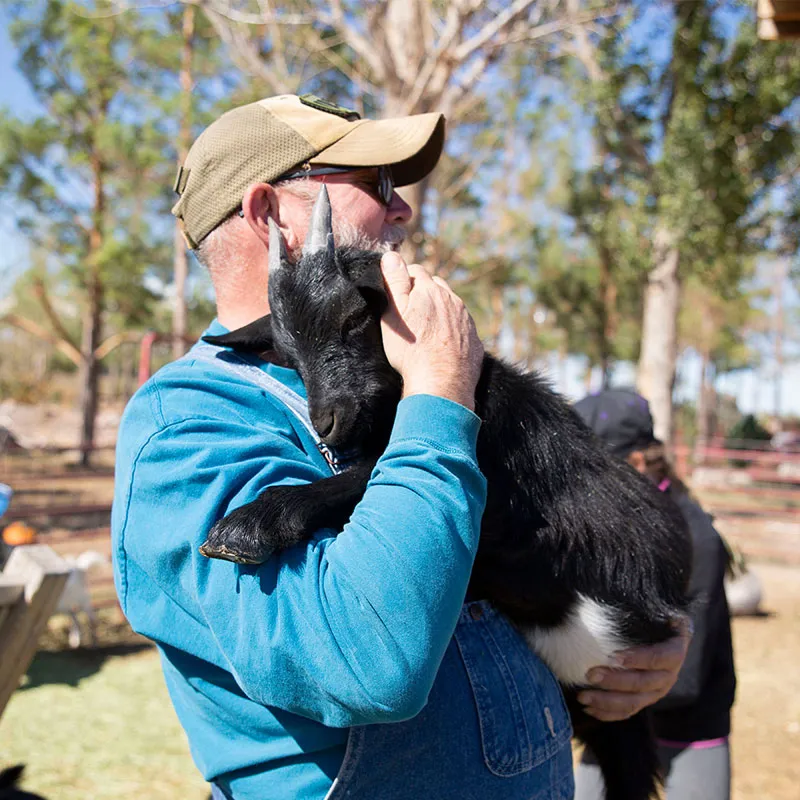
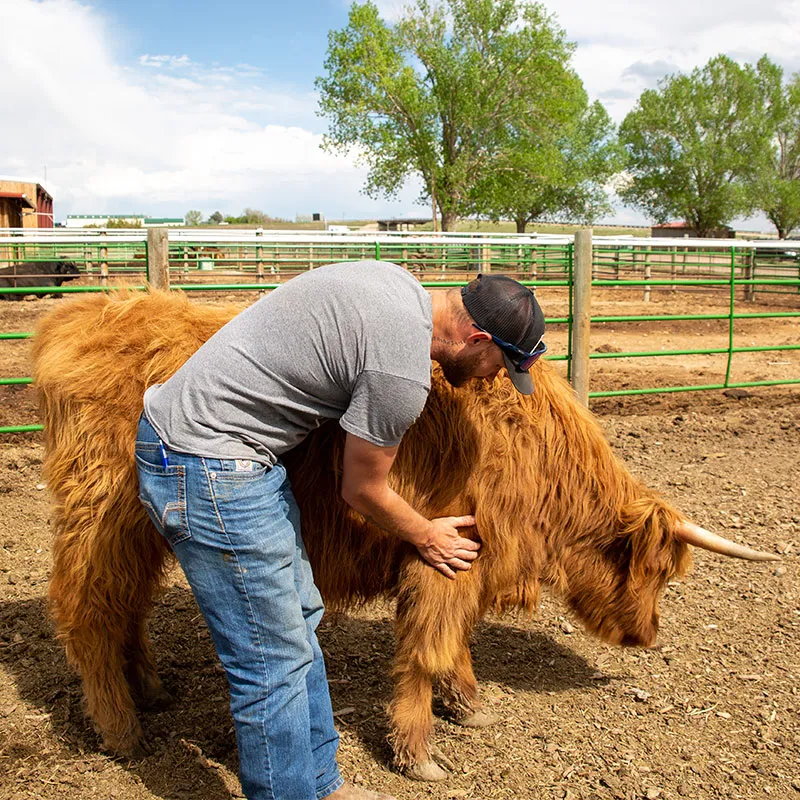
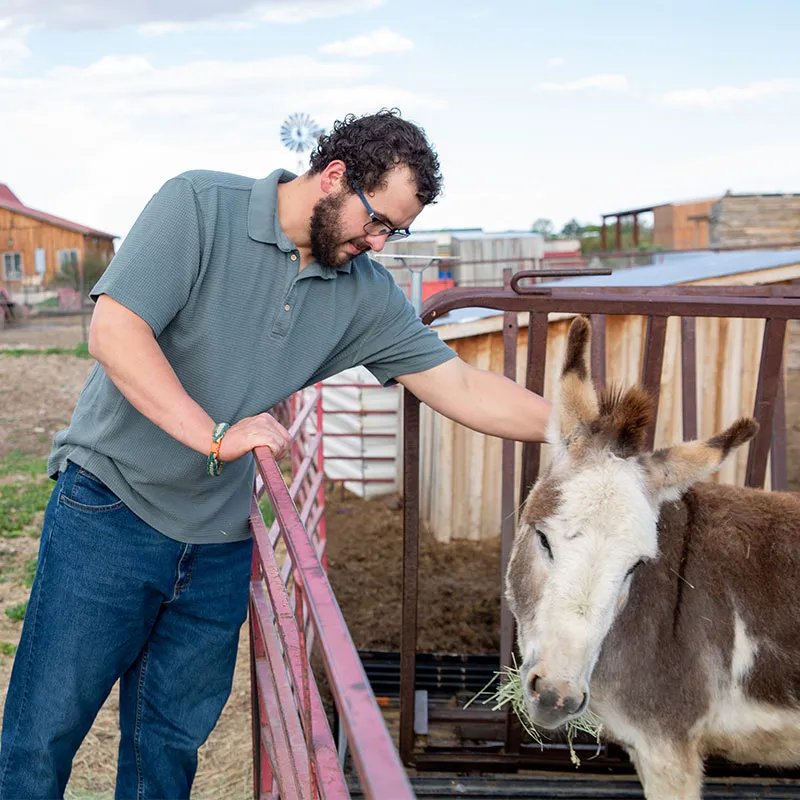
As much as I’d like to take credit for the success of the NLP guys, I know that the animals played the most pivotal part in their healing, allowing them to be themselves, not be judged for anything in the past, because the animals don’t care. They only care that you are consistently there to take care of them, and so far the participants have been knocking it out of the park with that!
Darrol Telk, Livestock Coordinator
Mindful Movement
Mindful movement helps process traumatic experiences and allows participants to tap into their body to use movement in healing ways.
Process Groups
Process groups create space for individuals to have two-way conversations to process what’s going on in their lives. Process groups include:
- Anger Management
- Cognitive Behavioral Therapy
- Grief and Loss
- Caregiver Education Support
- Relational Skills
- Financial Skills
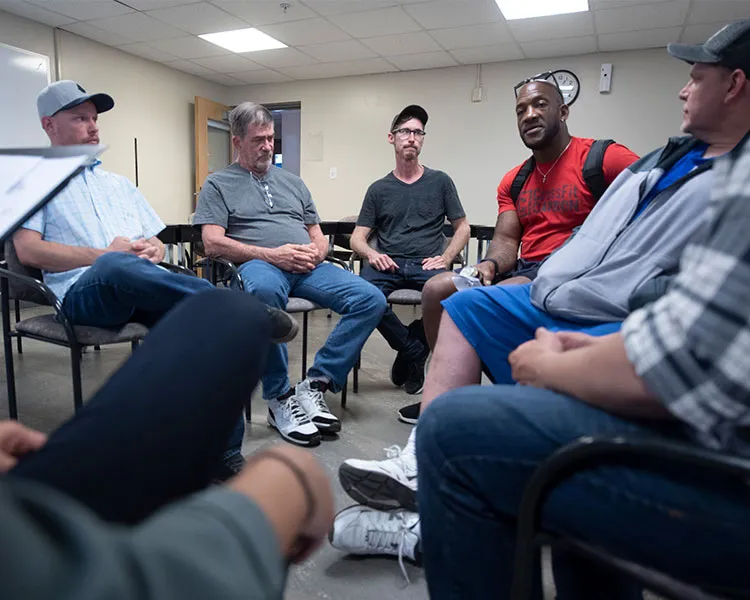
Intentional Language
The words we use matter. In Ephesians, the Bible tells us we should use our words to build each other up, and how we use our words with our guests and program participants is a great example of that. We try to phrase questions and responses with “I’ve noticed…” or “What I see is…” rather than assuming a person’s motivations or putting words in their mouth. Instead of asking: “Why are you mad?” We might say “I noticed you looked distressed earlier, how are you, how can I help?”
Motivational Conversations
Another part of building each other up is having motivational conversations. We ask questions that lead to people making decisions and choices on their own.
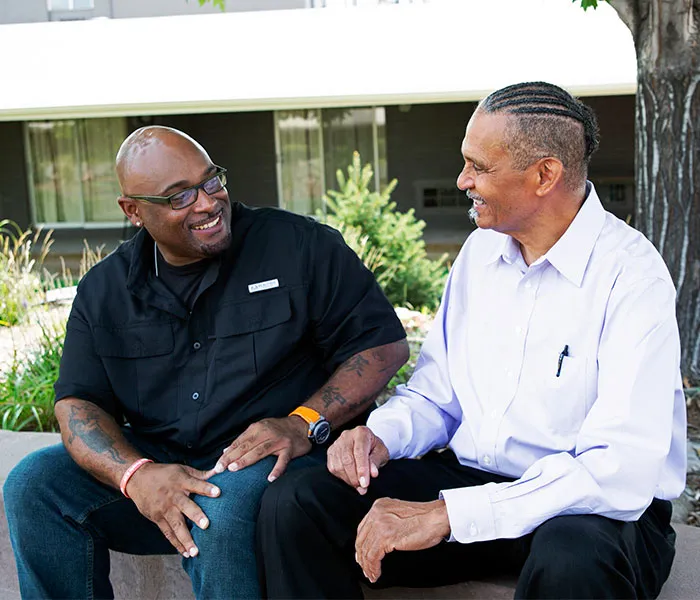
Asking our guests questions and having a conversation about their options leads to empowerment and self-sufficiency.
These conversations also build trust. While experiencing homelessness, people often feel they have few people they feel they can trust. These motivational conversations allow our staff to become someone they can depend on, as they work with them to find ways to improve their situation.
Other motivational conversations happen with mentors as well. Every year, more than 100 volunteers partner with us to provide community-building mentoring that helps our program participants get and stay connected with relational support both during their time in our program and after they leave.
Identifying Needs
It’s hard to build trust and rapport with someone if you don’t know their unique needs. Our intake team works hard to discover with our guests what their individual needs are as soon as they come through our doors. For some of our guests in 24/7 shelters, the group setting can be overwhelming, making it difficult to get critically needed sleep. So we offer ear plugs, eye coverings or a quieter area to sleep in if available.
Beyond the urgent and more timely needs of shelter guests, we also equip our program participants with the resources they need to be successful after they leave our programs: Last year alone, hundreds of Mission program participants were connected with mental health care.

As we recognize mental health awareness month, we want our guests and program participants to know that they are not alone. Together with supporters like you, our community comes together all year long to provide emergency services like meals and shelter, rehabilitation for men, transitional programs for individuals working their way out of homelessness, and community outreach through our food pantry and partnerships. Thank you for providing hope and healing for people in critical need in our community.
Are You Looking to Help Change Lives?
Faithful supporters like you help us share the love of Jesus as we provide support for immediate needs, long-term change and healing. Thank you for helping transform lives.
* Northern Colorado Continuum of Care: 2023 Point in Time & Housing Inventory Count Report
** Substance Abuse and Mental Health Services Administration (SAMHSA): Trauma and Violence – What is Trauma and the Effects?




